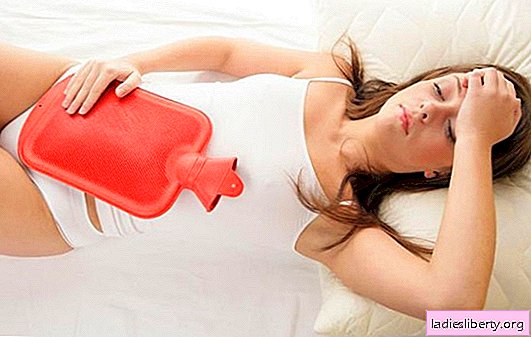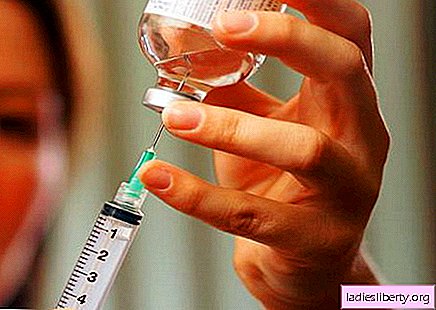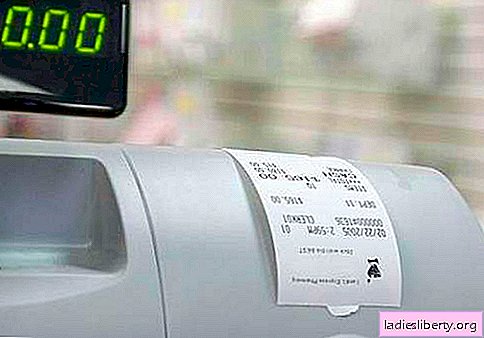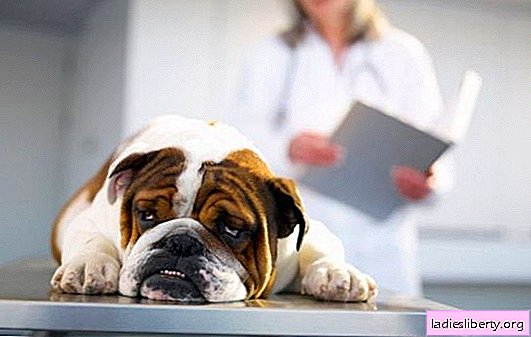
Problems after childbirth, as a rule, arise a lot.
One of them, which they do not always have time to pay attention to and deal with in a timely manner: the lower abdomen hurts after childbirth.
I must say that almost everyone has pain. The causes of these pains are many, and they are different. You must understand the seriousness of the situation: when you need to urgently take some action, despite the busyness and lack of time; and be able to differentiate between the normal state associated with the postpartum period and the formidable harbingers of an impending catastrophe.
In order not to be in the hospital again, one must learn to distinguish physiological pains from those caused by developing pathology. As a rule, in cases where the pain is short-lived and passes relatively quickly, you can not panic. But if the pain is intense or lasts more than a week without any positive dynamics, or it began to intensify, and accordingly, the general condition worsened, an urgent need for a doctor!
After childbirth pulls the lower abdomen - reasons
There are many factors that cause lower abdominal pain. Many of them relate directly to the postoperative period:
1. Birth gaps or episiotomy - at the same time, sutures can be applied to the labia, vagina, cervix. The percentage of such surgical interventions, unfortunately, is high.
After these surgical procedures, burning intense pain in the perineum occurs. Soon, these sensations disappear completely. As a rule, these pains disappear without a trace in a few days. But sometimes the stomach hurts for a month or longer. And then there will constantly be complaints that after birth the lower abdomen is pulled. This is due to:
- divergence of seams;
- skid infection.
Infection is a very serious complication requiring medical attention.
2. In addition to complaints that the lower abdomen hurts, purulent discharge appears, fever up to 38 degrees - a cesarean section. The operation is performed under local anesthesia. As soon as anesthesia disappears, pain immediately occurs. And in the future, for a very long time they will be disturbed by pain in the area of the postoperative scar until it is completely healed. Complete scarring occurs throughout the month.
3. Of all the above, the main reason that the lower abdomen hurts after childbirth is uterine contraction under the influence of oxytocin - a hormone that directly affects this process. Oxytocin is reflexively released during breastfeeding. In these cases, no additional intervention is required. When the uterus contracts, the remaining traces of blood, tissue, and placenta are removed.
These pains are most severe and unpleasant, starting from the first hours, when uterine contractions are especially intense.
4. A few, but common cases when in the uterus, the remaining particles of the placenta are revealed, possibly the remains of the fetal egg, accumulations of dead epithelium. Complaints that after birth the lower abdomen hurts. Be sure to be accompanied by high temperature, chills are often.
5. Recovery disturbed hormonal balance after childbirth.
6. Injury of the pubic bone. The pain caused by the injury goes away on its own after a certain time.
A stomachache a month after birth
If the stomach hurts for a month after childbirth, the soreness increases, accompanied by the addition of temperature up to 38 degrees and above, it is necessary to exclude serious complications requiring urgent medical advice.
1. If the stomach hurts, endometritis is ruled out immediately with a differential diagnosis. it inflammation of the uterine epithelium. It can develop at any time after childbirth.
Due to the fact that conditionally pathogenic microflora, which is normally present in the body of every woman, can become pathogenic with the development of endometritis. The cause of this activity may be reduced immunity - immunosuppression. For women in labor, this is a common condition, but in some cases, under the influence of some factor, this leads to the occurrence of endometritis. Either there is a skid of a bacterial or fungal infection during aspiration or for other reasons.
2. After a diagnostic curettage, the lower abdomen hurts for a long time. This unpleasant procedure is performed if you suspect residues of the placenta or umbilical cord in the uterus.
3. The stomach almost constantly hurts a month after childbirth multiparous.
With repeated birth, the uterus contracts longer due to the fact that its walls have lost their normal tone. Prostaglandins (hormones, including one of them, oxytocin, responsible for the rapid contraction of the uterus) are synthesized in much larger quantities than in primiparas. In this regard, after childbirth pulls the lower abdomen for a month or more. For many, this can stretch over time for almost the entire postpartum period.
4. Inflammation in the tubes, ovaries (salpingoophoritis, or adnexitis). Clinically manifested by the fact that after childbirth pulls the lower abdomen. These unpleasant sensations do not pass over time, but rather intensify. In intensity - not strong, but constant, exhausting.
5. Peritonitis - One of the most dangerous complications that also occurs as a result of infection. The pains become acute, the temperature rises. It requires urgent measures.
6. Injuries to the spine. If the lower abdomen hurts after childbirth, and the pain radiates to the spine, this is a manifestation of vertebral displacement that arose during childbirth. All this can occur remotely - even after a few months. Physical activity and even walking provoke pain. If this happens, it is necessary to examine the spine to clarify the pathology that has arisen. Based on the examinations, treatment is prescribed.
7. Hip divergence, sprain of muscles and ligaments leads to the fact that the stomach hurts a month after birth and more. The cure of the joint and the muscular - ligamentous apparatus can be delayed for a long time.
8. If the lower abdomen hurts after childbirth, the cause may be digestive system disease. Pain in the intestines can be provoked during the period of feeding the child with sleep deprivation, stressful situations, a change in diet, and insufficient rest. Therefore, it is necessary to consume a lot of vegetables and fruits, dairy products. Their absence causes increased gas formation and fermentation in the intestines, constipation, and, as a result, pulls the lower abdomen after childbirth.
After birth, lower abdomen hurts - what to do
If the lower abdomen hurts after childbirth, this prevents a harmonious existence and causes various discomforts. One must always know what to do in such cases. The tactics of treatment depend on factors leading to soreness.
1. After birth, lower abdomen hurts - inflammation
Conservative methods of treatment are used. Treatment should be comprehensive. Depending on the severity of the process, it consists of antibacterial, infusion, detoxification, sedative, desensitizing and restorative therapy. It is mandatory to take drugs to reduce the uterus.
Treatment begins with antibiotics. Cephalosporins and protected penicillins are mainly used.
It is possible to prescribe anti-inflammatory drugs (NSAIDs) in the absence of contraindications and immunostimulating drugs.
Also, drugs that increase the contractility of the uterus are used.
As soon as it is possible to remove the inflammation, the pain immediately goes away. It is important to remember that the use of antispasmodics is strictly contraindicated. You can not self-medicate.
2. After childbirth, the lower abdomen hurts in multiparous - what to do
With soreness in the lower abdomen after the second, third births, it is necessary to prescribe certain drugs, the mechanism of action of which is to suppress the formation of prostaglandins. It is prostaglandins that lead to the occurrence of pain, irritating special receptors. Such medicines are NSAIDs (Diclofenac; Nise, Aspirin, Dicloberl, etc.)
Can be used to relieve pain in multiparous painkillers:
• "Ketones",
• "Ketoprofen",
• "Artokol" and others.
It is safer to use drugs in the form of rectal suppositories. The advantage of this dosage form is the rapid absorption of the drug and the absence of side effects of the drug (the occurrence of stomach ulcers, erosive gastroduodenitis). Sometimes banal analgin helps.
3. After birth, the lower abdomen hurts - other reasons - what to do
1. If there are suspicions of pieces of the placenta or umbilical cord remaining in the uterus, a diagnostic curettage is performed and they are removed from the uterine cavity to prevent infection. After this intervention, antibiotics are required.
2. If vertebral displacement was diagnosed during childbirth, several courses of manual therapy are necessary.
3. Peritonitis is a life-threatening condition that requires immediate medical examination and, possibly, surgical intervention.
4. In violation of the functions of the digestive system need a special diet, depending on the identified pathology. Since the severity and pain in the abdomen resulting from the pathology of the digestive system can occur indefinitely after childbirth, you need to immediately diversify your diet with lactic acid products and fiber, which is found in vegetables and fruits. And eliminate slowly digested foods.
5. For non-inflammatory abdominal pains, some recommendations must be followed:
• in order for the uterus to return to normal sizes as soon as possible, it is necessary to find time for therapeutic exercises;
• on the fifth day after discharge, you must visit a gynecologist;
• adhere to a special diet, exercise physical activity.
Thus, successful treatment depends on eliminating the factors causing the pain.
If timely measures are taken to eliminate the root causes, this will reduce pain and prevent the occurrence of dangerous complications. After this, an adequate and effective treatment is possible, which will lead to success.











